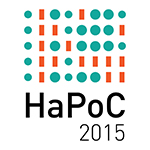The digital philosophy is strictly speaking a new speculative theory that places the bit at the foundation of reality and explains the evolution of reality as a computational process. This theory actually reinterprets some previous philosophical intuitions, starting from the Pythagorean theory of numbers as the beginning of all things and as a criterion for the comprehension of reality. Significant antecedents of this digital and computational philosophical approach, however, can be traced in the tradition of late antiquity and early Middle Ages too. One of the less investigated chapters of this ‘pre-history' of digital thinking is placed in the so-called Ottonian Renaissance (10th century), when we can identify theorists of what has been called – in reference to modern authors as Leibniz – ‘computational paradigm'. The paper focuses on the works of authors such as Abbo of Fleury (945-1004) and Gerbert of Aurillac (946-1003). Their theoretical basis is the famous biblical verse of Wis 11, 21 ("Omnia creata sunt in numero, mensura et pondere"): their passion for arithmetic arises from the awareness that "the numbers contain within them, or originate, the beginnings of all things". We can apply to these philosophers the modern concept of mathesis universalis, the term employed by Leibniz to describe his combinatorial art, or characteristica universalis.

 PDF version
PDF version
